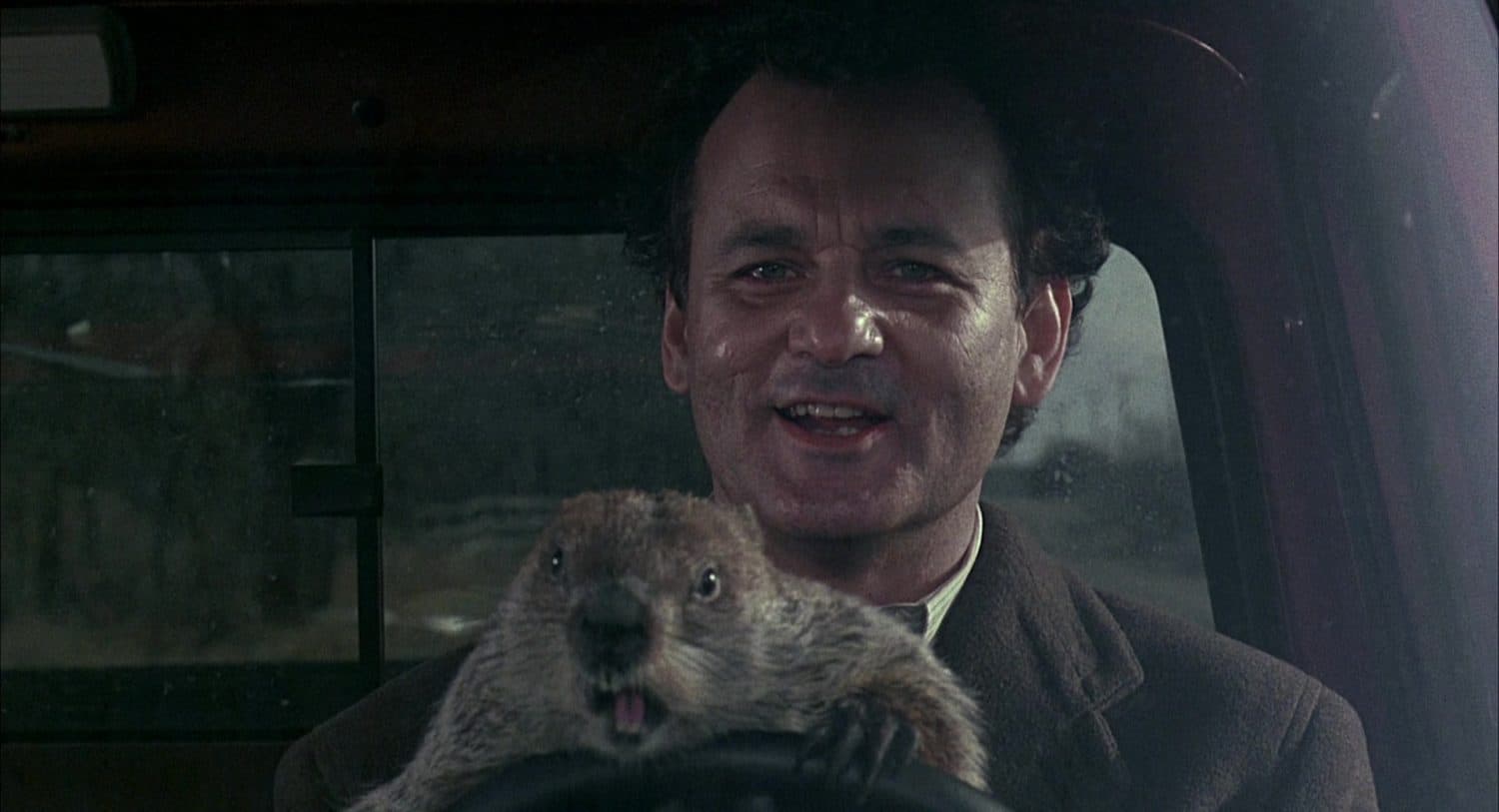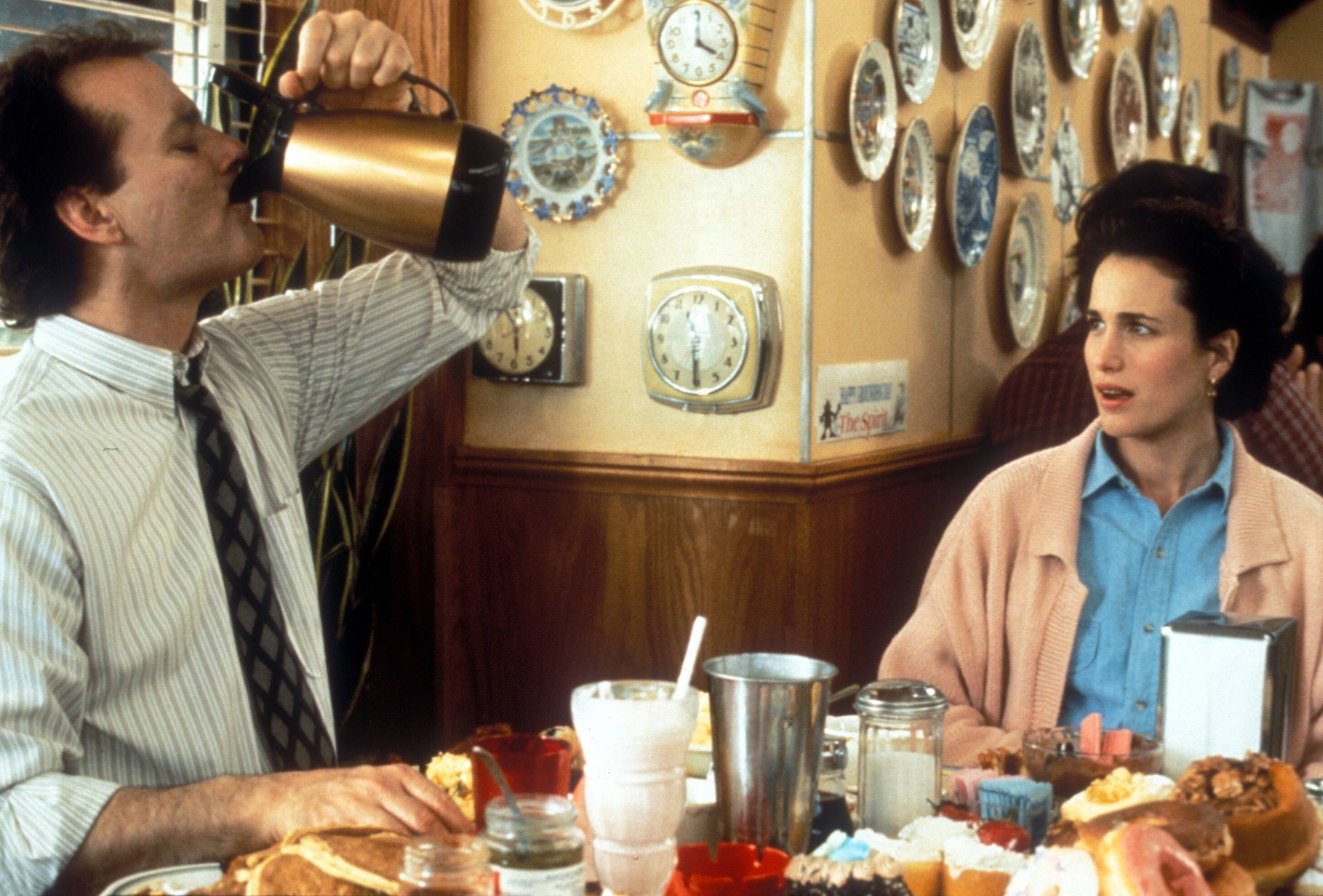Gallery
Photos from events, contest for the best costume, videos from master classes.
 |  |
 |  |
 |  |
 |  |
 |  |
 |  |
Harold Ramis’ 1993 film, Groundhog Day, is a charming and heartwarming comedy about an arrogant egotistical weatherman named Phil Connors (Bill Murray) who has a change of heart over the course It's February 2nd, and movie fans prepare themselves for Groundhog Day with one of the most deeply philosophical films ever made. This year is also the 25th anniversary of the movie "Groundhog Day." (SOUNDBITE OF FILM, "GROUNDHOG DAY") MURRAY: (As Phil) A thousand people freezing their butts off, waiting to worship a rat. Films Groundhog Day Michael Faust reviews this film in the light of eternity.. Is Groundhog Day one of the great philosophical movies? Viewed on the most trivial level it’s just another Hollywood rom-com, but on closer inspection it furnishes a dazzling treatment of Nietzsche’s concept of eternal recurrence, even illuminating Deleuze and Irigaray’s conflicting interpretations of this key Because we are all living the same day over and over again. There’s variance here and there, but each day is a chance, a blank slate, from which to work. The macro’s in the minutiae. Every day we have the same conversations with loved ones. Every day we make dinner, go to work, exercise, read. Or perhaps we don’t. The Metaphysics of Groundhog Day Lawrence Crocker says it’s about time, and personal identity, and free will. The 1993 movie Groundhog Day was, of course, made as an exploration of the metaphysics of time. The basic idea is that for on-location TV weatherman Phil Connors, the same Groundhog Day, February 2, in Punxsutawney keeps repeating. The movie Groundhog Day, starring Bill Murray, might not strike you as a deep source of ethical instruction, but Joseph Kupfer [1] plumbs its storyline to reveal some delightful ethical insights. He notes that the movie starts with Nietzsche’s idea of the eternal return [2] as a prompt about reflecting on our life and whether it is good I’ve made a point of rewatching the film on or about Groundhog Day nearly every year since the movie came out in 1993. And that is the philosophy of “Groundhog Day.” The profundity of “Groundhog Day” is inseparable from the film’s perfectly imperfect protagonist. Bill Murray’s character is self-interested, narcissistic, sexist, and mean — yet as ugly Groundhog Day might be about a single man forced to relive the same day over and over, but one sequence raises philosophical questions that go well beyond a single individual. Even though Phil Connors’ life resets every February 2 at 6:00 a.m., the movie also shows that for each Groundhog Day he experiences, the world still continues on for There has been an increasing interest in film-philosophy as a discipline within Film Studies since the 1990s and Film-Philosophy itself has played an important role in this development. We provide an important avenue for publication in the field of film and philosophy. Film-Philosophy 16.1 (2012) Film-Philosophy ISSN 1466-4615 149 Groundhog Day and the Good Life Diana Abad1 Groundhog Day is a splendid film about the good life. To be sure, it does not offer a complete theory of The Good Life; it is a Hollywood blockbuster, after all, no more, no less. Film-Philosophy is an open access peer-reviewed academic journal dedicated to the engagement between film studies and philosophy. The journal is interested in the ways in which films develop and contribute to philosophical discussion. Groundhog Day (Harold Ramis, 1993) and Only Lovers Left Alive (Jim Jarmusch, 2013) are fantasy films that use the device of practical immortality in order to raise important philosophical questions about what constitutes a good life and to explore the nature of romantic love. Groundhog Day provides fairly conventional answers about how to live a good life by focusing on issues of spiritual Man, I watched this movie all the time when I was a kid. On the eternal recurrence thing – I’d usually heard this expressed as a myth or a maybe a parable, and I’d always regarded it as such, but I’ve also heard some philosophers (Solomon, in his No Excuses course) say that Nietzsche was up on the science of his day and he really may have thought of this as a plausible theory, which Today, many of us will recall the American comedy film “Groundhog Day.” Originally released in 1993, it stars the incomparable Bill Murray as Phil Conners, an insufferable Pittsburgh weatherman. A minor local celebrity who believes himself destined for much better things, he resents his piddling assignment to report on the Groundhog Day celebration in Punxsutawney, [] Ramis, who died in 2014, said in a short documentary about the making of “Groundhog Day” that the film reflected his philosophy of life. What Danny and I both wanted to say with the movie is The 1993 film Groundhog Day features egotistical weatherman Phil Connors, played by Bill Murray, reliving the same day over and over. While the movie is beloved as a comedy, many religious scholars consider it an “underground Buddhist classic” for its depiction of the cycle of death and rebirth. What the philosophy may not consider is that sometimes feeling pain is a good thing. For us to grow we must know what it feels like to be cut down. Abad, D. (2012). Groundhog Day and the Good Groundhog Day is a 1993 American fantasy comedy film directed by Harold Ramis from a screenplay by him and Danny Rubin.Starring Bill Murray, Andie MacDowell, and Chris Elliott, it tells the story of a cynical television weatherman covering the annual Groundhog Day event in Punxsutawney, Pennsylvania, who becomes trapped in a time loop, forcing him to relive February 2 repeatedly.
Articles and news, personal stories, interviews with experts.
Photos from events, contest for the best costume, videos from master classes.
 |  |
 |  |
 |  |
 |  |
 |  |
 |  |